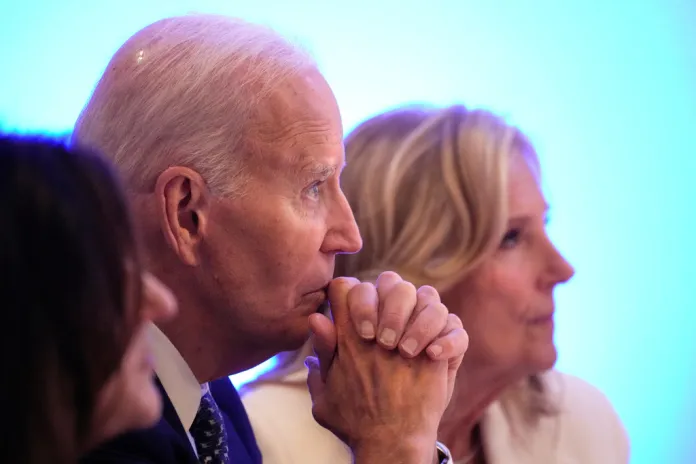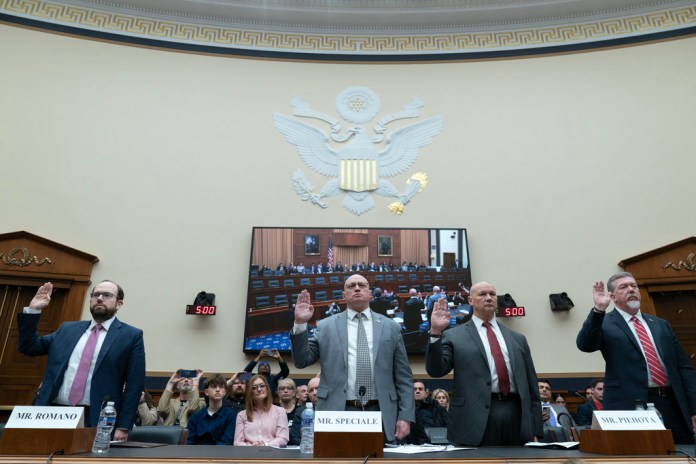Biden’s staff approved mass last-minute pardons with autopen
The article reveals that former President Joe Biden delegated much of the decision-making for his large-scale, last-minute clemency actions to his aides, including then-chief of staff Jeff Zients. Emails obtained by The New york times show that Biden’s staff created a complex process months in advance where lower-level assistants drafted summaries of pardons based on discussions among senior officials. Zients and White House counsel Ed Siskel then approved these summaries,after which staff secretary Stefanie Feldman authorized the use of an autopen device to automatically sign Biden’s name on hundreds of clemency warrants just hours before Biden left office.
While Biden personally reviewed and approved high-profile pardons for political figures like Anthony Fauci and general Mark Milley,mass pardons-mostly for nonviolent offenders-were issued using a set of criteria applied by staff without Biden’s direct involvement in each case. Biden defended the autopen’s use,citing the volume of clemency warrants,but acknowledged he hand-signed only one pardon during his term.
Republicans, including House Oversight Committee Chair James Comer, have criticized the process, suggesting it raises questions about Biden’s cognitive ability and who truly exercised executive power during the final phase of his presidency. Investigations and subpoenas into the autopen’s use and related email records are ongoing, with many documents still unreleased. Former President Donald Trump has also called for probes into what he terms a major scandal concerning Biden’s mental fitness and the legitimacy of pardons issued.
Biden’s staff approved mass last-minute pardons with autopen
Former President Joe Biden did not closely review every case included in his sweeping end-of-term clemency spree and instead delegated vast authority to aides to handle the process, including to then-chief of staff Jeff Zients, who signed off on the use of an autopen to execute dozens of high-profile pardons on Biden’s final night in office.
A complicated web of aides handled the process behind the scenes. New emails reported by the New York Times show Biden’s staff set up a system months ahead that let lower-level assistants draft summaries of meetings they didn’t attend, based on what senior officials said Biden had decided. Those write-ups were then passed up the chain to Zients and White House counsel Ed Siskel, who signed off and sent the summaries to staff secretary Stefanie Feldman, the official who gave the green light for the autopen machine to stamp Biden’s name on hundreds of clemency warrants.
The automated signing device was utilized at 10:31 p.m. on Jan. 19, just hours before Biden left the White House, according to emails the New York Times obtained from the National Archives. The revelations mark the most significant admission of the Biden administration’s autopen approval process, which has attracted scrutiny due to concerns from Republicans that Biden’s White House staff wielded the automatic signature device to approve acts of clemency and other executive actions without the president’s full knowledge and understanding.
Biden staff members say they discussed high-profile pardons with president, left mass clemency to a ‘criteria’ formula
The report revealed that Zients’s approval email in January came after Biden met with top aides to finalize clemency decisions, including preemptive pardons for former COVID-19 adviser Anthony Fauci and Gen. Mark Milley, the former Joint Chiefs of Staff chairman, suggesting there was a process in place through which Biden staffers would elicit approval from the president before initiating the autopen. The reporting suggests a system in which Biden had more awareness over high-profile pardons involving political officials while exerting less oversight over mass-clemency actions.
“I approve the use of the autopen for the execution of all of the following pardons,” Zients wrote after meeting with Biden, referencing a list of names Biden’s aides compiled based on earlier discussions, according to the New York Times.
Unlike the list of high-profile figures pardoned, Biden did not play a personal role in approving each recipient of the mass pardons his aides organized in batches based on a set of general “criteria,” such as clemency for nonviolent drug offenders. The president said in an interview that he left it to his staff to apply the criteria. The final lists of people receiving the pardons were signed with the autopen after Zients and other senior officials, including Bruce Reed and Siskel, approved the process.
“We’re talking about a whole lot of people,” Biden told Axios in a statement defending the mechanism for his mass pardons.
Biden’s White House issued 4,245 acts of clemency while in office — 96% of which were granted between October 2024 and January 2025, according to the Pew Research Center. Emails reviewed by the New York Times also revealed that Feldman, Biden’s White House staff secretary, only allowed the autopen to be used once aides confirmed his instructions in writing. Still, critics say the process casts doubt on who was truly exercising executive power at the time.
White House spokesman Harrison Fields told the Washington Examiner the truth would “come out” about who was actually running the country during Biden’s tenure. He also hit out against reporters who “carried water for Biden and his corrupt administration” and accused them of “once again covering their shameless and dishonest tracks.”
Although the emails reviewed by the New York Times laid out the process through which Biden staffers gained approval to use the autopen, they also raise new questions for the congressional investigations and Trump administration inquiries. President Donald Trump, who has expressed serious doubt about Biden’s ability to lead, encouraged the investigations earlier this year.
“This conspiracy marks one of the most dangerous and concerning scandals in American history,” Trump wrote in a June memo directing Attorney General Pam Bondi to investigate Biden’s autopen usage and mental acuity. Trump has argued the pardons, particularly the preemptive ones issued for political allies and members of the Jan. 6 committee, were “void” if Biden wasn’t mentally competent to authorize them.
Biden, in a phone interview with the New York Times, pushed back on those allegations, calling Trump and his allies “liars” and insisting, “I made every decision.” Though he defended the use of the autopen due to the volume of warrants, he confirmed he hand-signed only one: a December 2024 pardon for his son Hunter Biden.
Comer ramps up ‘scandal’ rhetoric amid thousands of unseen Biden-era emails
Meanwhile, House Oversight Committee Chairman James Comer (R-KY) has subpoenaed multiple former Biden aides and is expanding the panel’s investigation into what he calls a broader cover-up of the former president’s cognitive decline. Senate Republicans have also opened inquiries into Biden’s use of the autopen and its possible misuse under the Constitution.
For Comer, the revelations about the process that Biden’s staff implemented for approving the autopen only bolstered his concerns that the former president could not make important decisions about pardons without the help of staff and aides.
“New reporting confirms Biden White House staff took executive action without the President’s approval,” Comer told the Washington Examiner in a statement. “The House Oversight Committee will continue pursuing answers about this historic scandal to prevent such an abuse from happening again.”
The New York Times noted that there are still many emails from the Biden White House that its reporters were not able to review, leading to an incomplete picture of how its pardon process worked. A broader sense of how the Biden administration handled its pardon process could require Congress and federal investigators to obtain tens of thousands of emails, which are under review by the Department of Justice.
BIDEN INSISTS HE MADE EVERY CLEMENCY DECISION AS HOUSE INVESTIGATION INTO AUTOPEN RAMPS UP
House Republicans are likely to turn their focus toward the tranche of emails cited by the New York Times, as thousands of emailed records remain unpublished. It is not clear when or whether Comer’s investigation will obtain access to the full slate of emails referenced by the report.
The Washington Examiner contacted the National Archives for more information about the Biden-era email records.
" Conservative News Daily does not always share or support the views and opinions expressed here; they are just those of the writer."




